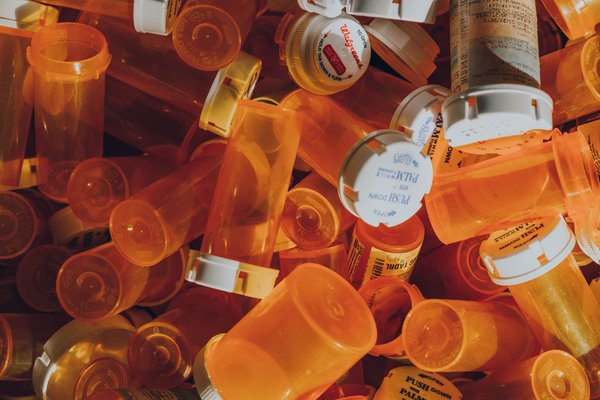The U.S. Drug Enforcement Administration was "slow to respond" to the opioid crisis, according to a report released Tuesday by U.S. Inspector General Michael Horowitz.
The report detailed the DEA's failure to limit the opioid crisis, which has claimed hundreds of thousands of lives throughout the last two decades.
- RELATED STORIES
- Pennsylvania legislators push 'fair pay to play' bill for college athletes after California success
- Here's what you need to know about the youth vaping epidemic
- Benjamin Franklin High School, Science Leadership Academy closed after asbestos detected in building
Among the findings: The DEA increased oxycodone quotas for a decade despite opioid deaths continuing to rise, according to the report.
Between 1999 and 2013, opioid deaths increased by an average of 8% each year. But the rise was particularly sharp from 2013 to 2017, when opioid deaths rose by an average of 71%.
Despite these increases, the DEA allowed annual oxycodone production to jump by 400% between 2002 and 2013. The agency didn't reduce the quota until 2017, when it was slashed by 25%.
The agency also drastically diminished the use of immediate suspension orders – its most powerful enforcement tool – between 2013 and 2017. Immediate suspension orders can prevent registrants from diverting prescription narcotics, but the DEA only issued 43 orders during that stretch. By contrast, it issued 45 orders in 2012 alone.
Additionally, the DEA's registration process allowed opioid manufacturers, distributors and health care providers to reapply the day after having their registration revoked, the report found. Registrations are required for anyone handling controlled substances, including opioids.
The agency also did not track ordering patterns for pharmaceuticals or monitor trends for controlled substance abuse, the report found.
The opioid epidemic began in in the late 1990s after pharmaceutical companies began pushing prescription opioids to doctors, claiming the painkillers were not addictive, according to the National Institute on Drug Abuse. In 2017, over 47,000 Americans died from an opioid overdose. About 80% of people battling heroin addictions say they first became addicted to prescription opioids.
Follow Virginia & PhillyVoice on Twitter: @vastreva | @thePhillyVoice
Like us on Facebook: PhillyVoice
Add Virginia's RSS feed to your feed reader
Have a news tip? Let us know.


